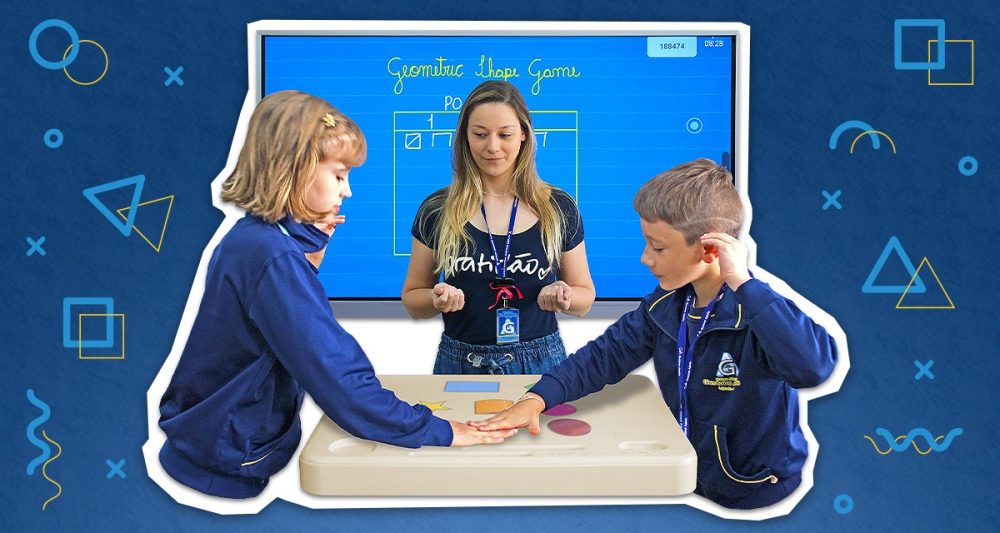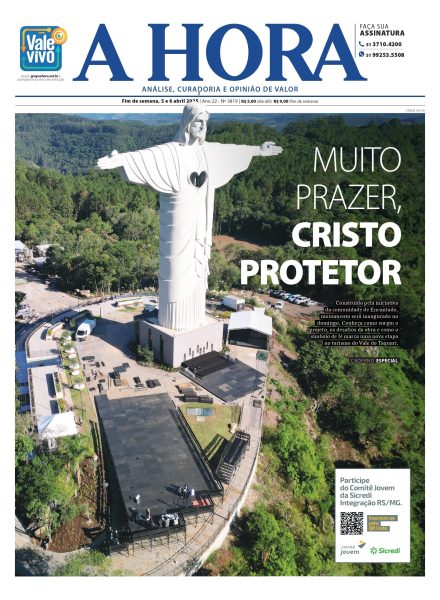
Making students think in English is one of the goals of Bilingual Education at Gustavo Adolfo. To achieve this, teachers develop several initiatives that fit into their daily lives. A good example of this was the Geometric Shape Game, applied to the 3rd Year A of Elementary School.
According to teacher Jéssica Meneghini, the game is a version of Tapa Certo, where a pair of students at a time need to identify a geometric shape based on their command in English. “In the first round, I used visual resources for them to better assimilate the vocabulary. In the second round, they played only by listening to train listening and comprehension skills”, she explains.
Usually, a game like this is made as a content wrap-up, to capture the lessons learned. In this case, they were addressed within the area of geometry, more specifically about flat area, within the mathematics content. “We work bilingually on the content they have in both languages. So, if they have geometry in Portuguese, they will have geometry in English as well. We always work on this content together, with several activities”, explains Jéssica.
Bilingual teaching in routine
One of the students who participated in the Geometric Shape Game was Murilo Scherrer, 9 years old. In GA since level I of pre-school and a fan of science and robotics, he states that he gets along better with English than with Portuguese. Furthermore, the classroom lessons are already part of the routine at home.
“I like having two teachers, having classes in Portuguese and also in English. And at home, as I always watch YouTube, English helps me understand videos that don’t have subtitles and even video game matches”, tells Murilo.
Meanwhile, Jéssica Botega, Cecília Botega’s mother, also a 3rd Year A student, highlights that her daughter’s adaptation to the bilingual environment occurred naturally, mainly due to the school’s guidance in this transition. Like other classmates in the class, she also shows interest in watching videos exclusively in English.
“The influence of this learning at home is very noticeable. Cecília shows a remarkable improvement in the pronunciation of words and phrases, in writing and even occasionally correcting us. Nowadays, we are fully aware that mastering English is essential and will have a significant impact on our children’s future”, concludes Jéssica.
